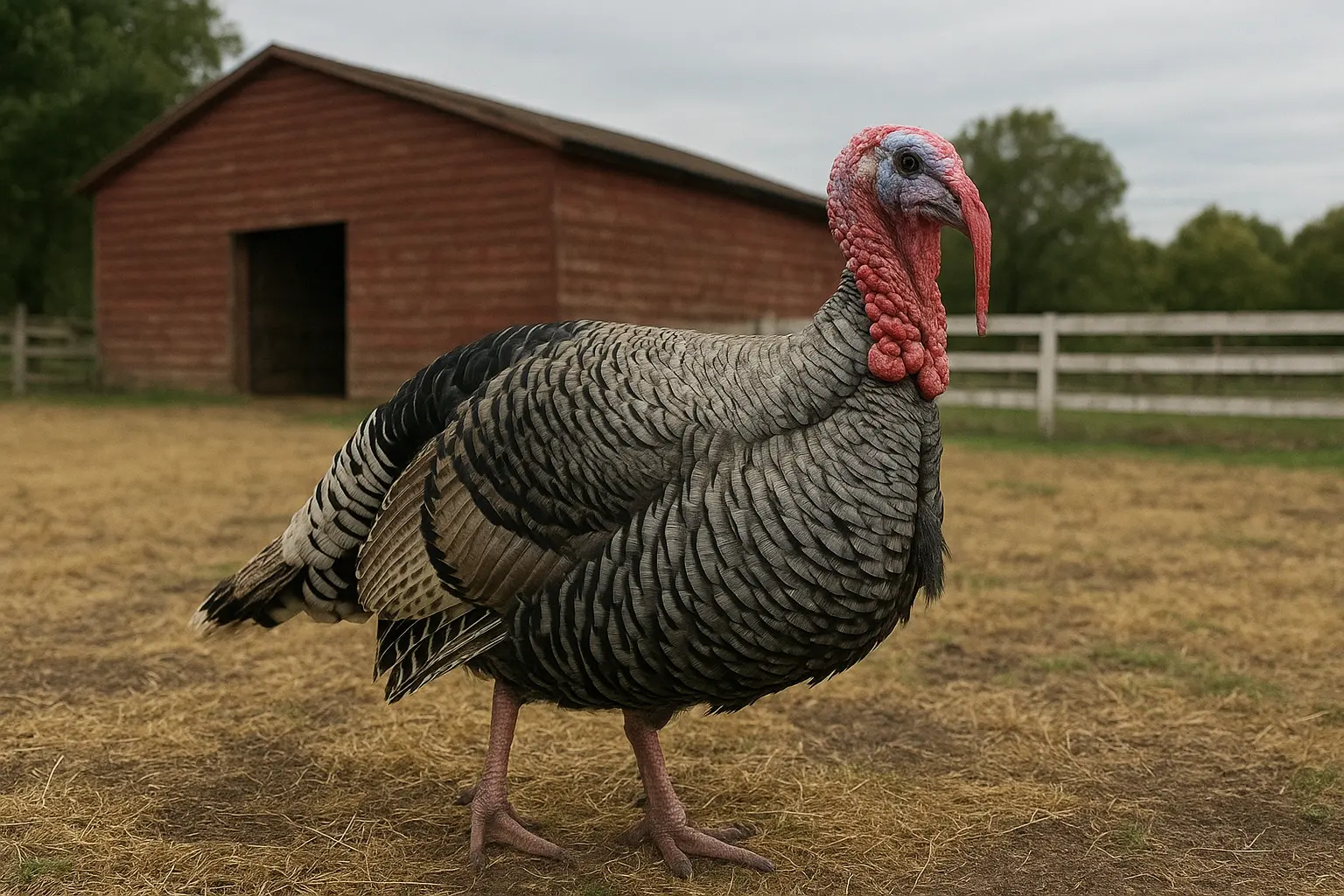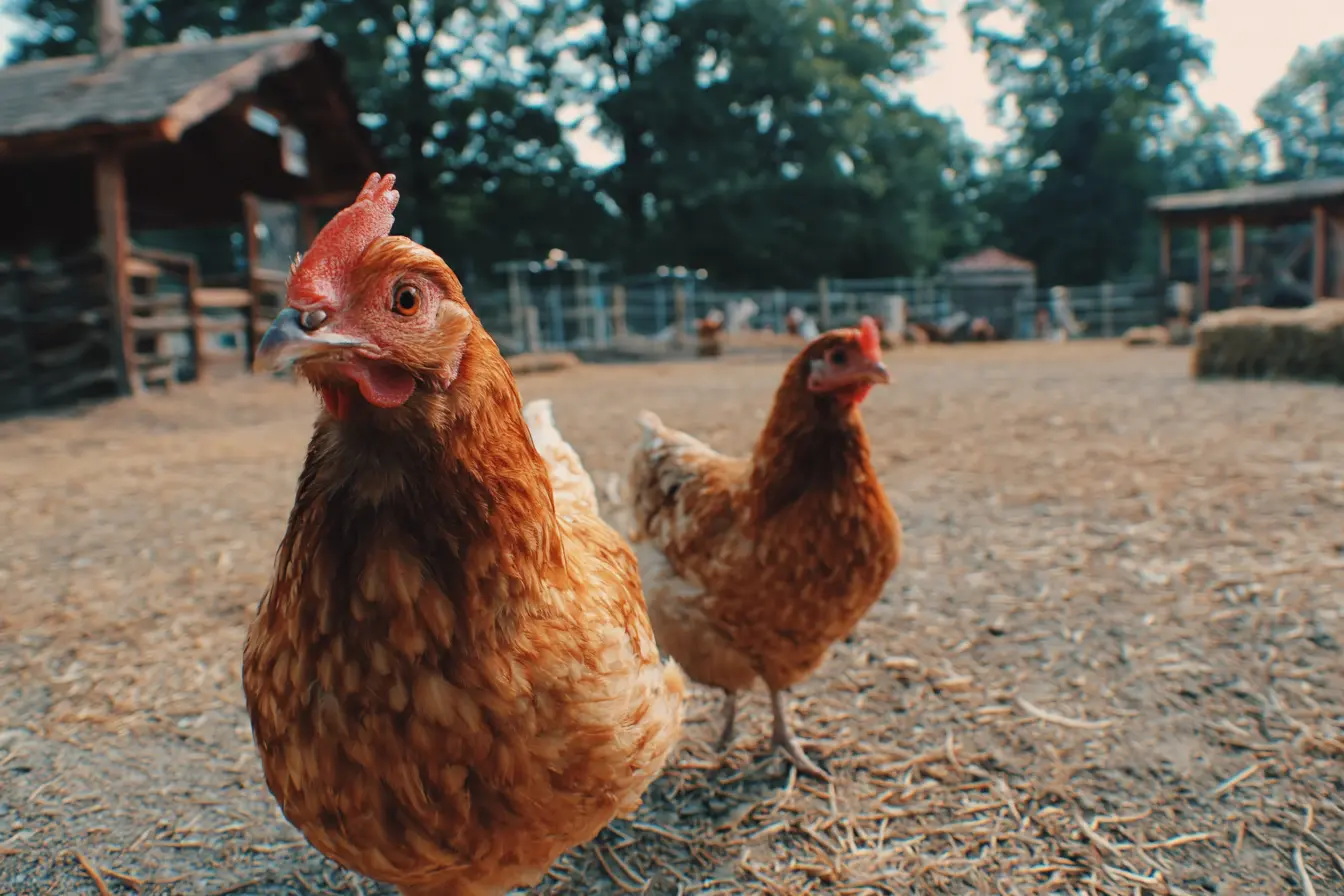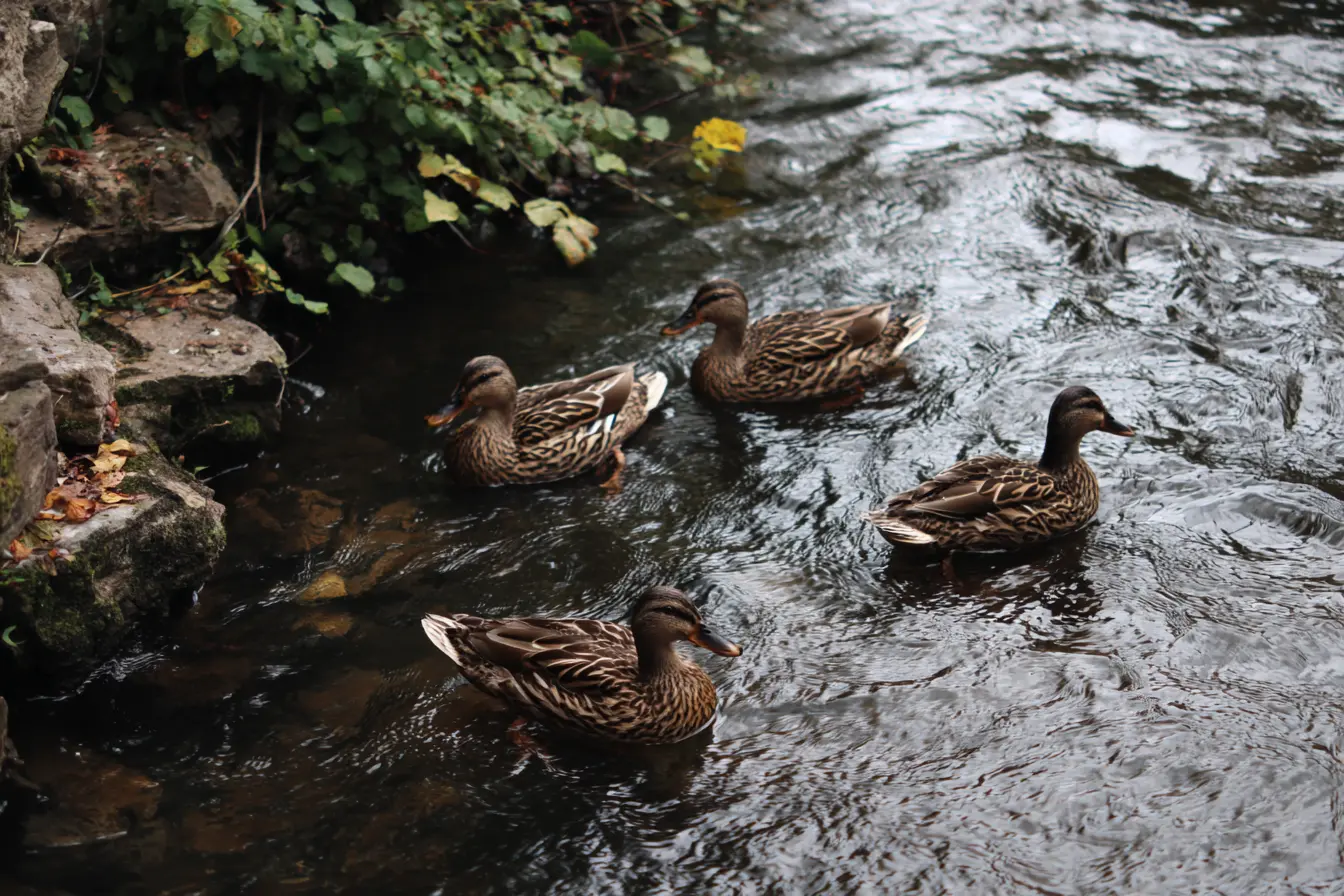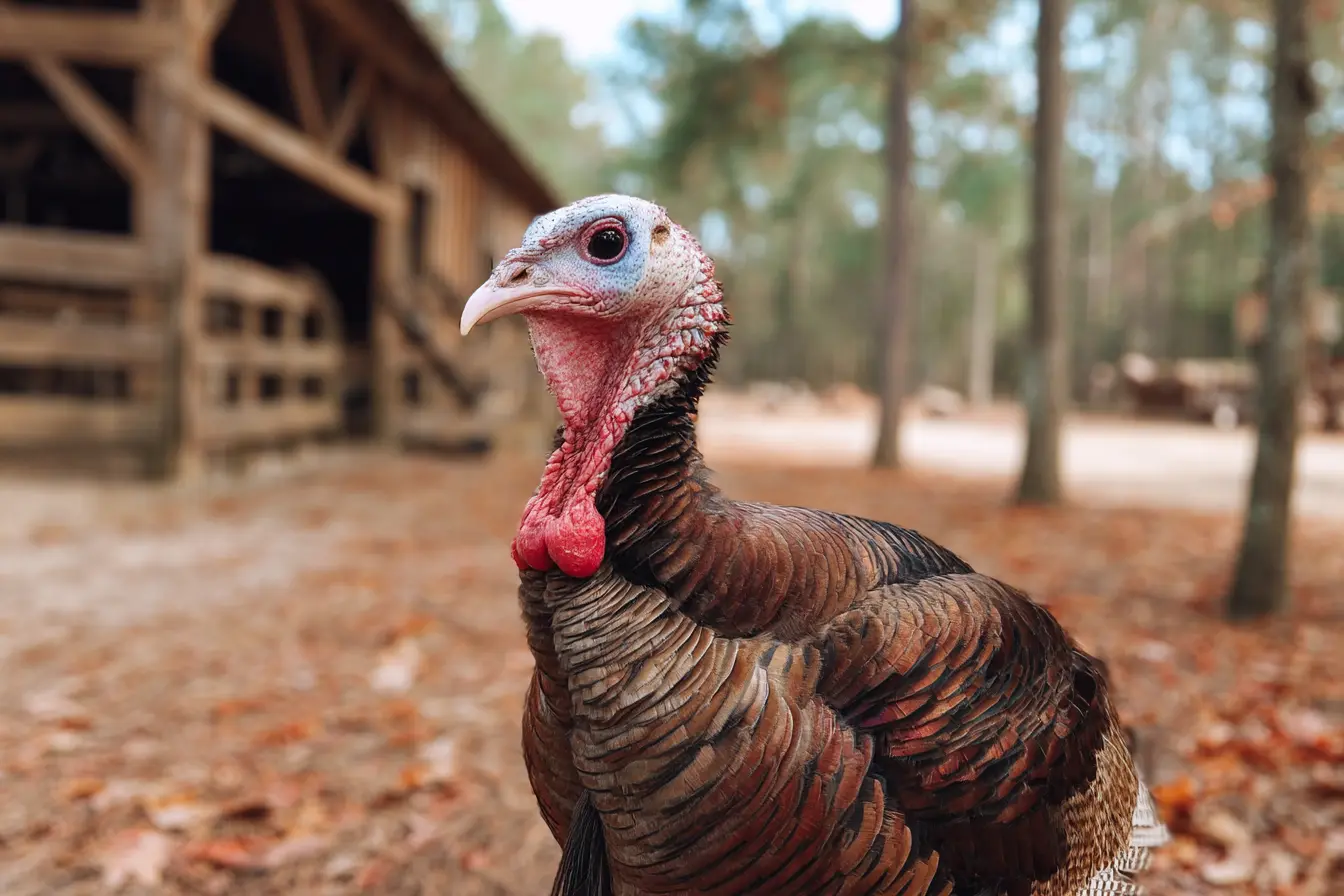
A Complete Guide to Keeping Narragansett Turkeys
Narragansett turkeys are an excellent choice for poultry keepers in the UK looking for a heritage breed that combines beauty, excellent meat quality, and a calm temperament. Whether you’re considering raising them for their delicious meat, as ornamental birds, or simply for their engaging personalities, Narragansett turkeys can be a rewarding addition to your smallholding or backyard flock.
This comprehensive guide will provide all the essential information potential owners need to know about keeping Narragansett turkeys, including housing, feeding, health, and general care.
Introduction to Narragansett Turkeys
Narragansett turkeys are a heritage breed that originated in the United States, developed from wild turkeys and domesticated breeds brought by early European settlers. They are known for their striking appearance, with black, grey, and white feathers that create a beautiful contrast. Their friendly nature and adaptability make them a fantastic choice for UK poultry keepers.
Key Characteristics:
- Lifespan: 5-10 years with proper care
- Size: Medium to large (toms weigh 10-14 kg; hens 6-8 kg)
- Temperament: Docile, intelligent, and social
- Appearance: A mix of black, grey, and white feathers with a unique striped pattern
- Meat Quality: Tender and flavourful with excellent texture
- Hardiness: Adaptable to the UK's climate but requires shelter in extreme weather
Why Choose Narragansett Turkeys?
Narragansett turkeys offer numerous benefits for poultry keepers in the UK:
- Exceptional Meat Quality: They provide a rich, well-textured meat with a traditional flavour.
- Friendly Disposition: Their calm and sociable nature makes them easy to handle.
- Excellent Foragers: They are adept at finding food, reducing feed costs and helping control pests.
- Low Maintenance: Hardy and relatively easy to care for, requiring minimal intervention.
- Heritage Breed: Keeping Narragansett turkeys helps support conservation efforts and sustainable farming practices.
- Adaptable to Free-Range Systems: They thrive in large open spaces, making them ideal for free-ranging environments.
Housing Requirements for Narragansett Turkeys
Providing the right housing is essential to ensure the health, safety, and well-being of your turkeys.
Shelter Requirements
- Size: Allow at least 1.5-2 square metres per turkey inside the shelter.
- Bedding: Use straw, wood shavings, or hay to provide warmth and comfort.
- Ventilation: Ensure good airflow to prevent dampness and respiratory issues.
- Predator Protection: Secure the shelter against common UK predators such as foxes.
- Perches: Provide sturdy perches about 50 cm off the ground, as turkeys enjoy roosting.
Outdoor Space
Narragansett turkeys enjoy open spaces where they can roam and forage.
- Minimum Space: Allow at least 10-15 square metres per bird for free-ranging.
- Fencing: Use fencing at least 1.5 metres high to prevent wandering and protect them from predators.
- Shelter Areas: Provide shaded areas and windbreaks for protection against harsh weather.
Tip: Rotate grazing areas regularly to maintain pasture quality and prevent overgrazing.
Feeding Your Narragansett Turkeys
A nutritious and balanced diet is essential to maintain the health and productivity of your flock.
Essential Nutrition
- Starter Feed (0-8 weeks): A high-protein feed (26-28%) to support strong early development.
- Grower Feed (8-16 weeks): A moderate protein feed (18-20%) for steady growth.
- Finisher Feed (16+ weeks): Lower protein feed to support muscle development without excess fat.
- Grit: Helps turkeys digest food efficiently.
- Greens and Scraps: Provide leafy greens, vegetables, and fruits for additional nutrition.
- Fresh Water: Ensure a constant supply of clean, fresh water for hydration and digestion.
Feeding Tip: Avoid feeding them chicken feed, as it lacks the necessary protein content for turkeys.
Health and Common Concerns
Narragansett turkeys are generally hardy but require regular health checks and preventative care.
Common Health Issues
- Blackhead Disease: A parasitic infection spread by chickens; avoid housing turkeys with other poultry.
- Respiratory Infections: Ensure dry, well-ventilated housing to prevent respiratory issues.
- Leg Problems: Their weight can put stress on joints, so ensure good pasture and proper nutrition.
- External Parasites: Check for mites and lice regularly and treat accordingly.
- Coccidiosis: A common digestive issue that can be prevented with good hygiene and appropriate medication if needed.
Preventative Care:
- Provide clean, dry bedding.
- Maintain a balanced diet.
- Conduct regular health inspections.
Narragansett Turkey Behaviour and Handling
Narragansett turkeys are known for their docile, friendly nature and inquisitive personalities.
- They enjoy human interaction and can become quite affectionate with regular handling.
- They are excellent foragers and enjoy searching for insects and plants in their environment.
- Toms can display territorial behaviour during the breeding season but are generally not aggressive.
- They are intelligent birds and can be trained to follow routines.
Handling Tip: Handle poults regularly from a young age to encourage tameness and ease of management.
Egg Production and Collection
While primarily raised for meat, Narragansett hens can also provide a small number of eggs.
Egg-Laying Habits
- They typically start laying eggs at around 7-9 months of age.
- Expect around 2-3 eggs per week, mainly in the spring and summer months.
- Their eggs are larger than chicken eggs and have a thick shell.
- Hens are known to go broody and may hatch their own eggs.
Egg Collection Tip: Collect eggs daily to ensure freshness and prevent the hens from becoming broody.
Winter Care for Narragansett Turkeys
Narragansett turkeys are well-suited to the UK's climate but need extra care in the winter months.
- Shelter Insulation: Provide extra bedding to help retain warmth.
- Preventing Frozen Water: Use heated drinkers or regularly check and replace frozen water.
- Increased Feed: Increase their caloric intake to help maintain body heat.
- Dry Ground: Provide dry areas to prevent foot issues caused by wet and muddy conditions.
Winter Tip: Watch out for signs of frostbite, particularly on their wattles and feet.
Breeding and Raising Poults
If you're considering breeding Narragansett turkeys, providing the right conditions is key to success.
Breeding Tips
- Toms can become protective during breeding season; ensure enough space to prevent aggression.
- Provide quiet, secluded nesting areas with plenty of bedding for hens.
- The incubation period for turkey eggs is 28 days, with consistent warmth needed for successful hatching.
- Poults require a warm brooder and high-protein feed for healthy development.
Growth Rate: Poults grow steadily and reach market weight within 24-28 weeks.
Legal Considerations in the UK
Before keeping Narragansett turkeys, it's essential to check legal requirements and responsibilities.
- DEFRA Regulations: Follow biosecurity guidelines to prevent avian diseases.
- Local Council Rules: Check for any restrictions on keeping turkeys in residential areas.
- Neighbour Considerations: Inform neighbours, as turkeys can be vocal, especially during mating season.
Conclusion
Narragansett turkeys are an excellent choice for UK poultry keepers looking for a heritage breed that offers delicious meat, a calm temperament, and an attractive presence in the flock. Whether you're raising them for their table value, their engaging personalities, or their ability to forage efficiently, they are sure to provide enjoyment and utility.
By providing appropriate housing, nutrition, and care, your Narragansett turkeys will thrive and bring value to your home for years to come.
Contents
- Introduction to Narragansett Turkeys
- Why Choose Narragansett Turkeys?
- Housing Requirements for Narragansett Turkeys
- Feeding Your Narragansett Turkeys
- Health and Common Concerns
- Narragansett Turkey Behaviour and Handling
- Egg Production and Collection
- Winter Care for Narragansett Turkeys
- Breeding and Raising Poults
- Legal Considerations in the UK
- Conclusion
Tags
Vets near you
Speciality vets
- Aquatics vet specialists
- Birds vet specialists
- Camelids vet specialists
- Cats vet specialists
- Cattle vet specialists
- Deer vet specialists
- Dogs vet specialists
- Equines vet specialists
- Exotic vet specialists
- Goats vet specialists
- Pigs vet specialists
- Poultry vet specialists
- Sheep vet specialists
- Small Mammals vet specialists
- Wild vet specialists
Vet facilities
- Accessible by public transport
- Blood testing
- Car park nearby
- Client car park
- Dentistry
- Diagnostic imaging
- Disabled public access
- Flea and worm treatments
- Microchipping
- Mobile services
- Neutering
- Open at weekends
- Out-of-hours service
- Referral interests
- Referrals only
- Street parking outside
- Toilets available
- Vaccinations



